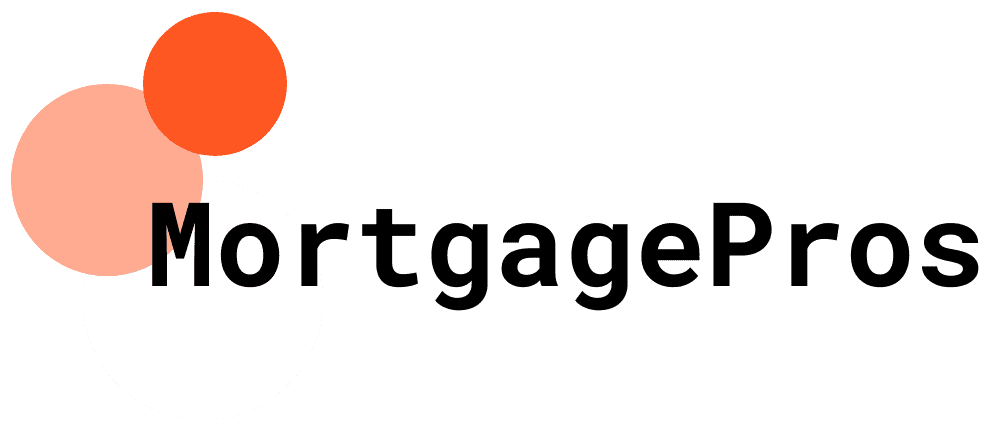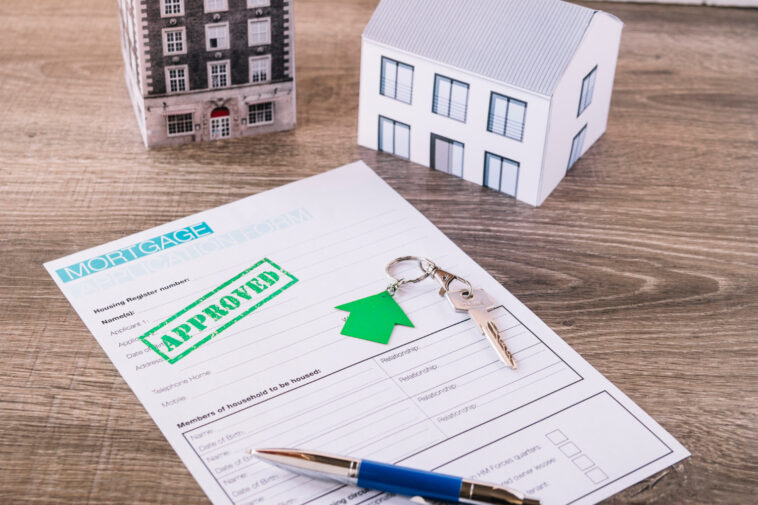If you’re a veteran, active-duty service member, or part of the National Guard or Reserves, there’s a powerful financial tool at your disposal to help you achieve the dream of homeownership—the VA mortgage. Created by the U.S. Department of Veterans Affairs, the VA loan program offers a variety of benefits that can make buying or refinancing a home more accessible and affordable for those who have served our country.
But what exactly is a VA mortgage? How does it work, and what steps do you need to take to qualify? In this guide, I’ll break down everything you need to know about VA home loans, from eligibility and benefits to the application process, so you can navigate the home-buying journey with confidence.
What is a VA Mortgage?
A VA mortgage, also known as a VA home loan, is a government-backed loan program designed to help veterans, active-duty military members, and certain surviving spouses buy, build, or refinance a home. The loan is issued by private lenders, such as banks or mortgage companies, but is partially guaranteed by the Department of Veterans Affairs (VA). This guarantee reduces the risk for lenders, allowing them to offer favorable terms to qualified borrowers.
One of the standout features of a VA mortgage is that it often requires no down payment, making it an attractive option for those who may not have a large amount of savings to put toward a home. Additionally, VA loans typically come with lower interest rates and more lenient credit requirements compared to conventional mortgages.
VA Mortgage Benefits: Why It’s a Game-Changer for Veterans
The VA loan program comes with several unique benefits that make it one of the most advantageous mortgage options available to veterans and service members. Here are some key advantages:
1. No Down Payment
What it means: Unlike most conventional loans that require a 3-20% down payment, a VA mortgage allows you to buy a home with zero money down. This can be a game-changer for veterans who want to buy a home but may not have the savings for a hefty down payment.
Why it matters: Saving for a down payment is often the biggest obstacle to homeownership. By eliminating this requirement, the VA mortgage program makes it easier for veterans to step into the housing market, even if they don’t have significant savings.
2. No Private Mortgage Insurance (PMI)
What it means: When you take out a conventional loan with less than 20% down, lenders usually require you to pay for private mortgage insurance (PMI) to protect themselves in case you default on the loan. VA loans, however, don’t require PMI, even with no down payment.
Why it matters: PMI can add hundreds of dollars to your monthly mortgage payment. By not having to pay for it, you can save a significant amount of money over the life of the loan, making homeownership more affordable.
3. Lower Interest Rates
What it means: VA loans typically offer lower interest rates than conventional mortgages, which can lead to substantial savings over the life of the loan.
Why it matters: A lower interest rate means lower monthly payments and less money spent on interest over time. This can make a big difference in your overall financial picture, especially over a 30-year mortgage.
4. Lenient Credit Requirements
What it means: While most mortgage programs require a good credit score, VA loans tend to have more flexible credit requirements, making it easier for those with less-than-perfect credit to qualify.
Why it matters: Veterans and service members who have struggled with credit issues in the past still have a chance to qualify for a home loan. The VA mortgage program’s leniency on credit can help more veterans achieve their goal of homeownership.
5. No Early Repayment Penalty
What it means: Some loans come with penalties if you pay off your mortgage early, but VA loans do not impose any such fees. If you want to pay down your loan faster, you’re free to do so without financial repercussions.
Why it matters: Being able to make extra payments without penalty allows you to pay off your home sooner and save on interest, giving you greater financial flexibility.
Who Is Eligible for a VA Mortgage?
To qualify for a VA loan, you must meet certain service requirements set by the Department of Veterans Affairs. Here’s a breakdown of who is eligible:
1. Veterans
If you’ve served in the U.S. Armed Forces, you’re likely eligible for a VA mortgage. The specific length of service required depends on when you served. For example, most veterans who served during wartime must have at least 90 days of active duty, while those who served during peacetime may need 181 days of active service.
2. Active-Duty Service Members
Active-duty members of the military are also eligible for VA loans, typically after 90 continuous days of service during wartime or 181 days during peacetime.
3. National Guard and Reserve Members
Members of the National Guard and Reserves who have served at least six years or been called to active duty for at least 90 days are generally eligible for a VA loan.
4. Surviving Spouses
The unremarried spouse of a veteran who died in service or as a result of a service-connected disability may also be eligible for a VA loan. Some surviving spouses of prisoners of war or those missing in action may also qualify.
How to Apply for a VA Mortgage
The process of applying for a VA loan is similar to that of other mortgage loans, but with a few extra steps. Here’s a general outline of the steps you’ll need to take:
1. Obtain a Certificate of Eligibility (COE)
Before you can apply for a VA mortgage, you’ll need to obtain a Certificate of Eligibility (COE) from the Department of Veterans Affairs. This document verifies that you meet the service requirements for a VA loan. You can apply for your COE online through the VA’s eBenefits portal, or your lender may be able to help you obtain it.
2. Choose a VA-Approved Lender
VA mortgages are not issued by the Department of Veterans Affairs itself but by private lenders, such as banks, credit unions, and mortgage companies. When choosing a lender, make sure they are VA-approved, as not all lenders offer VA loans. It’s a good idea to shop around and compare rates from multiple lenders to find the best deal.
3. Get Pre-Approved
Before you start shopping for homes, it’s smart to get pre-approved for your VA loan. During pre-approval, the lender will review your financial information to determine how much you can borrow. Pre-approval strengthens your offer when you find the right home, as sellers know you’re a serious buyer.
4. Find Your Dream Home
Once you’re pre-approved, you can start house hunting! Keep in mind that while VA loans are flexible, they do have certain property requirements. The home must be safe, sound, and sanitary to meet the VA’s minimum property standards. Most homes that are in good condition will qualify, but fixer-uppers or homes that need major repairs may not meet VA standards.
5. Complete the VA Loan Process
After you’ve found a home and made an offer, the lender will begin the underwriting process to finalize the loan. This involves verifying your financial details and ensuring the property meets VA standards. The VA will also conduct an appraisal to determine the home’s value.
6. Close on Your Home
If everything checks out, it’s time to close on your loan and take ownership of your new home! The closing process for VA loans is similar to other types of mortgages, but you’ll also need to pay a one-time VA funding fee, which helps offset the cost of the loan program. The amount of the funding fee depends on factors like your service history, loan amount, and whether you’re making a down payment.
VA Mortgage Refinancing Options
Already own a home with a VA mortgage but want to refinance? The VA offers two primary refinancing options:
1. VA Interest Rate Reduction Refinance Loan (IRRRL)
The IRRRL, also known as a “VA streamline refinance,” allows you to refinance your current VA loan to a lower interest rate with minimal paperwork and no need for an appraisal or credit check. It’s designed to make refinancing fast and easy for veterans who want to lower their mortgage payments.
2. VA Cash-Out Refinance
If you want to tap into your home’s equity, a VA cash-out refinance allows you to take out a new mortgage for more than you currently owe and receive the difference in cash. This can be a good option if you need funds for home improvements, debt consolidation, or other major expenses.
Conclusion: Unlock the Power of a VA Mortgage
For veterans, service members, and their families, the VA mortgage program offers an incredible opportunity to buy or refinance a home with unbeatable benefits. From no down payment to lower interest rates and no PMI, it’s one of the most accessible and affordable paths to homeownership available today.
If you’re eligible, take advantage of this benefit you’ve earned through your service. Start by obtaining your Certificate of Eligibility, find a VA-approved lender, and begin your journey to homeownership. Whether you’re buying your first home, upgrading, or refinancing, the VA mortgage program can help make your homeownership dreams a reality.
FAQs about VA Mortgages
1. Can I use a VA loan more than once?
Yes! There is no limit to how many times you can use a VA loan, as long as you meet the eligibility requirements and pay off your previous VA loans.
2. What is the VA funding fee?
The VA funding fee is a one-time payment that helps fund the VA loan program. The amount of the fee depends on factors like your service history, loan amount, and whether you’re making a down payment. In some cases, veterans with service-related disabilities are exempt from paying this fee.
3. Can I buy a second home with a VA loan?
VA loans are intended for primary residences, so they can’t be used to purchase a vacation home or investment property. However, you may be able to use a VA loan to purchase a multi-unit property, as long as you live in one of the units.
4. Is there a credit score requirement for a VA loan?
There is no official minimum credit score for VA loans set by the Department of Veterans Affairs, but most lenders look for a score of at least 620. However, the more lenient credit requirements of a VA loan may allow for approval even with a lower score.
With the benefits of no down payment, no PMI, and competitive interest rates, the VA mortgage is a fantastic resource for veterans and their families to achieve the dream of homeownership. Take the time to explore your options and start your journey to owning your own home today!

